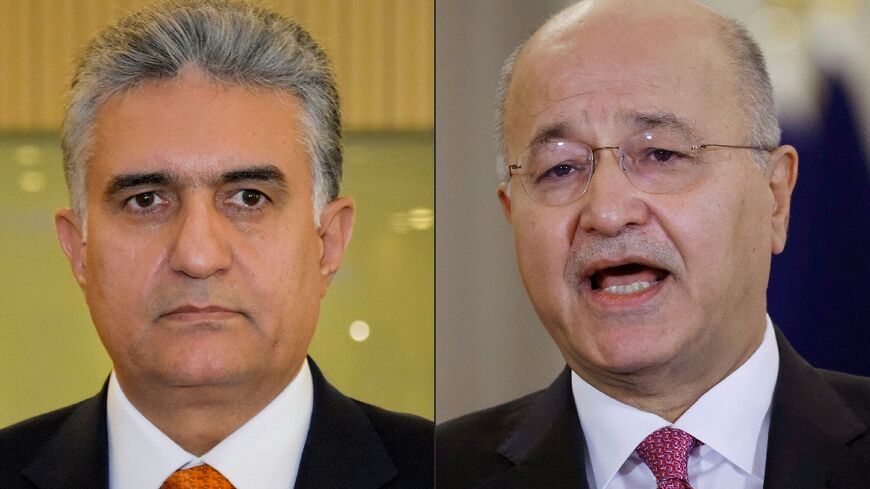Six months after Iraq's parliamentary vote, the war-scarred country is no closer to electing a president amid a bitter political stalemate that has thrown institutions into limbo.
Wrangling between rival Muslim Shiite blocs in the assembly on Wednesday scuppered the legislature's third attempt to elect a head of state.
Though a largely ceremonial role, the president determines the country's next prime minister who will in turn form a cabinet to be voted in by an absolute majority of lawmakers.
- What is the hold-up? -
A schism running through the so-called "Shiite house" of Iraqi politics lies at the heart of the impasse.
Firebrand Shiite cleric Moqtada Sadr has long claimed the largest bloc in parliament, with 73 seats out of the 329-member legislature.
But his bloc does not have enough members to establish a clear majority -- forcing him to reach out to form an untraditional alliance.
Eschewing the more predictable grouping with other Shiite factions, Sadr has chosen to ally with the Kurdistan Democratic Party (KDP) and Sunni parties to form a coalition dubbed "Saving the Homeland", with 155 seats.
The coalition backs KDP candidate Rebar Ahmed for the presidency -- a post reserved for Kurds, while the post of prime minister by convention goes to a Shiite.
Shirking the tradition of forming a "consensus government" between Shiite parties, Sadr hopes to put forth a "majority government" led by his cousin, Iraq's ambassador to Britain Jaafar al-Sadr.
This has placed his coalition at loggerheads with the Coordination Framework -- a powerful force that includes former premier Nuri al-Maliki's party and the Iran-backed Fatah Alliance, the political arm of the Shiite-led former paramilitary group Hashed al-Shaabi.
The Coalition Framework has 130 MPs, which boycotted all three sessions to elect a president, preventing the assembly from reaching the required two thirds quorum.
- How to resolve the crisis? -
After the third vote failed on Wednesday, Sadr again rejected the idea of a consensus government, saying this would amount to the "death" of Iraq.
A date for a new vote has yet to be set, and Iraqi political analyst Ihsan al-Shammari believes this "indicated that there is no prospect for the resolution of the crisis".
"There is no rapprochement between (Sadr's) alliance and the Coordination Framework," he said.
This risks dragging the crisis out for months, while keeping the incumbent president and prime minister in their seats.
"Unless there is an outside threat, such as the organisation of Islamic State in 2014 which pushes political leaders to come together and quickly reach agreement, they will continue for as long as it takes to reach what they want. Even if that means surpassing the limits set out in the constitution," said political expert Hamzeh Haddad.
- What does the constitution say? -
Under the Iraqi constitution the president should be elected within 30 days of the first meeting of the new parliament, which in this case was on January 9. This deadline has largely expired and we "have broken the constitution," said legal expert Ahmed al-Sufi.
The country's highest legal body, the federal court, afterwards extended the deadline to elect a president to April 6. But the judges can only give an opinion and not seize the political initiative.
The court "has no authority, other than to rule whether the constitution has been violated or not," said Sufi.
Parliament could dissolve itself and call new elections. But to do that, at least a third of the MPs must meet and present the proposal which must then be approved by a majority plus one.
This option is not very likely, said Haddad as there is "no political will".
"And as was demonstrated by the low turnout in the past two general elections, Iraqis have very little appetite to go out and vote," he added.





